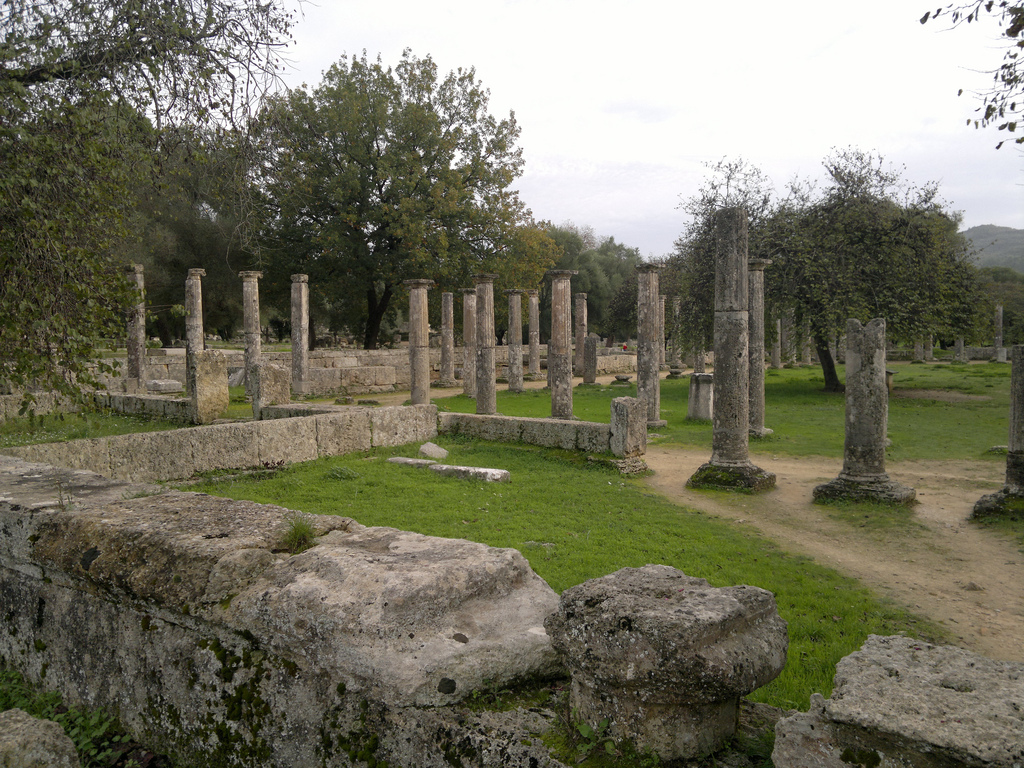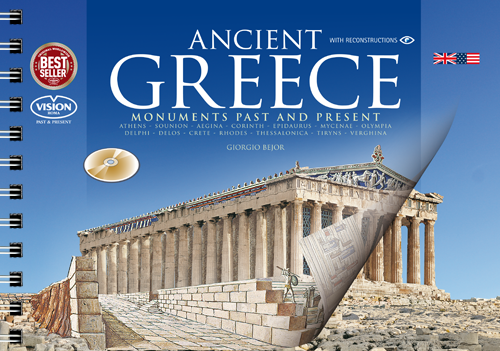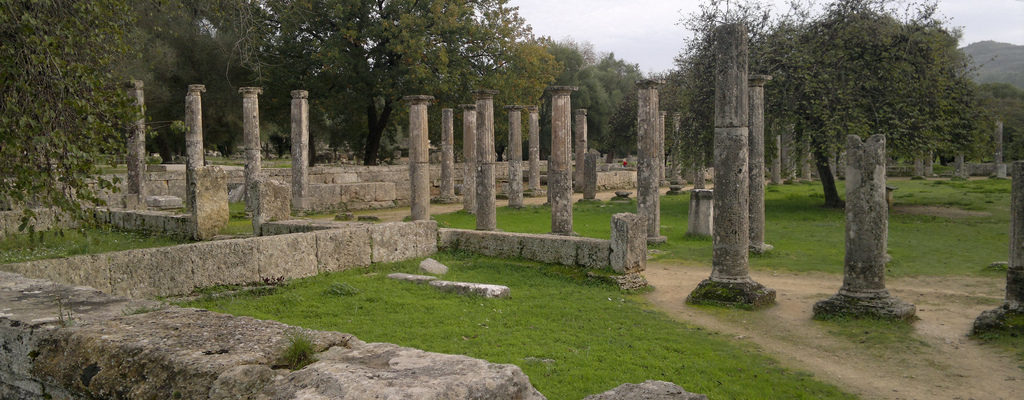The sanctuary of Olympia is one of the most important sanctuaries in the Greek world. The first traces of its plan date back to the VIIIth century BC.
Legend has it that it was founded by Pelops, the hero after whom the Peloponnese was named, who defeated King Oinomaos in a chariot race, the prize for which was the hand of his daughter Hippodameia.
According to another legend, it was Herakles who founded the games and the custom of donning a olive wreath upon victory in the games.

© Photo credits by John Karakatsanis under CC-BY-SA-2.0
First Olympic games in ancient times were celebrated in 776 BC: this was from then on taken as a starting point for the Greek system of dating.
As still happens today, the games took place every four years in August (but at the time lasted only five days), with the participation of athletes from all the cities of the Greek world.
The first Olympic sport was the running of the stadion (measure of distance equivalent to about 192 m), to which other athletic contests were later added, such as the jump and the hurling of the javelin and the discus.
The umpires of the games were priest-judges, known as hellanodikai, of whom two were initially elected and later ten from 472 BC onwards). The importance of the Olympic games was such that any wars underway were suspended while they were taking place.
The sanctuary enjoyed wealth and prestige until it was sacked by Sulla during the Roman conquest in 86 BC.
Its end was marked by the IVth century edicts of the Roman Emperor Theodosius, which forbade the execution of pagan practices and events.

Do you want to know more about Olympia and the history of Greece?
Check out our guidebook to Ancient Greece, with detailed history and Past & Present images of the Acropolis, the Parthenon, Olympia and all the greatest historical and archaeological sites of Ancient Greece.

